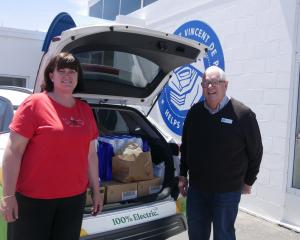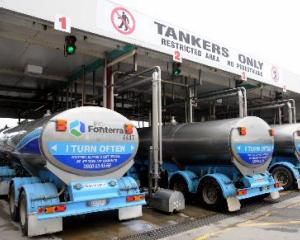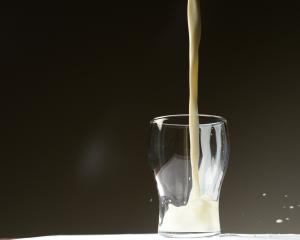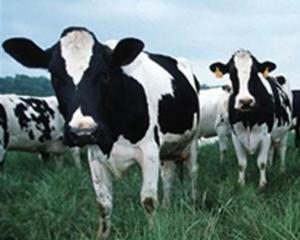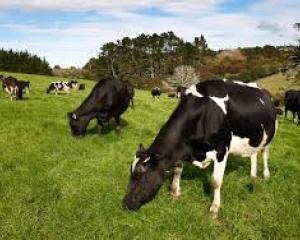As could be expected, Fonterra's decision to supply free milk to primary school children from next year has been greeted with nothing but praise. So it should.
Who could argue with the sentiments - New Zealand's largest company investing some of its billions to give children a wholesome and nutritional daily glass of milk?
And, to avoid the unappealing, not to say unappetising spectre of warm, souring milk, Fonterra intends to investigate supplying schools with refrigerators, too.
The Milk for Kiwis plan announced by Fonterra chief executive Theo Spierings last week will initially benefit 14,000 children in 110 Northland primary schools.
The trial will be monitored, but Fonterra says the intention is to provide milk to all schools from 2013. Worthy intentions aside, it is likely some froth on the top of the milk has also helped drive Fonterra's decision.
Offering free milk is a public relations coup designed to counter the ongoing criticism the company has faced about the high cost of milk.
And, quite possibly, to offset the continuing bad odour of the damage to New Zealand's waterways by the dairying industry New Zealanders want to know why milk and other dairy products such as cheese and butter cost so much in a country with an abundance of grass and dairy cows.
They do not understand the theory served up by Mr Spierings and others - that a doubling of the price paid internationally for dairy products in the past 18 months pushes up dairy prices in this country, too.
Economists may understand the mechanics of national and international pricing; it is the same theory used to explain why South Islanders cannot have cheap electricity when it is produced in abundance on their doorsteps through hydro generation; or why fruit and vegetables grown just down the road cost as much as garlic or grapes imported from halfway round the world.
To ordinary New Zealanders, it seems logical goods and food items produced locally should cost less than those grown or manufactured overseas which incur the inescapable additional cost of being freighted here. But this is the reality of being part of a globalised, largely tariff-free international trade system.
Ironically, insofar as it is criticised for its high prices, Fonterra is a victim of its own success. The company has recorded exceptionally strong financial results for its 10,500 farmer shareholders. It has just announced a record financial result for 2011, including revenue of $19.9 billion.
It will distribute milk payments and dividends totalling $10.6 billion - $2.4 billion more than in 2010 and $1.5 billion more than its previous best year in 2008.
Rising milk prices have been panned by everyone from social service agencies to nutritionists.
Sugary soft drinks are now often cheaper in the supermarket than milk and much less healthy. This has led to declining milk consumption, a trend not seen in this country before.
In his Milk for Kiwis announcement, Mr Spierings acknowledged one of the company's goals was to ensure children grew up drinking milk.
Fonterra will not reveal the cost of the scheme. A rough calculation puts the cost of the milk for Northland children at about $700,000 a year, based on each child receiving a daily 250ml glass over the school year.
The financial commitment could grow to a much more hefty $20 million-plus a year when the scheme is introduced across the country.
Then there is the cost of the refrigerators. Fonterra has wisely realised today's strict health and safety regulations would not allow schools to leave milk sitting around unchilled as happened in the days of the old school milk scheme between 1937 and 1967.
For New Zealanders who recall the sometimes stomach-churning experience of sitting in a classroom cradling a warm bottle of milk and poking a straw through the gooey layer of cream congealed on the top, refrigeration will be regarded as a welcome advance.
Of course, today's school children with a dislike for milk could always do what previous generations did - surreptitiously donate their school-issued beverage to a fellow student.

